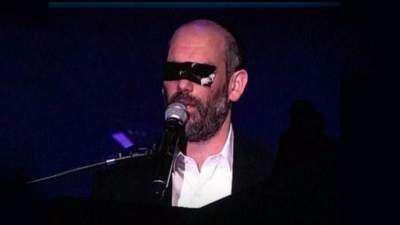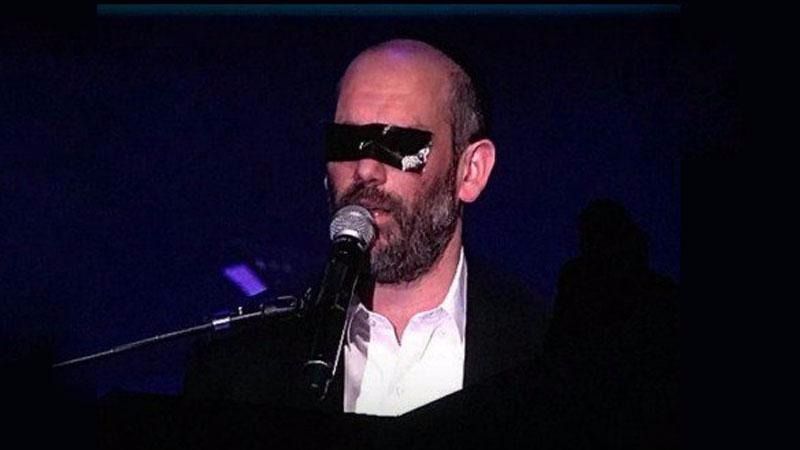On Dec. 3, 2017, an unspeakable act occurred in Jerusalem. Yonatan Razel, an ultra-Orthodox Jewish musician, saw that women at his concert wanted to dance. Faced with the conflict between these women’s wants and the laws of modesty (which state that men shouldn’t look at dancing women), he took extreme action against his female audience. He… covered his eyes with tape.

At a music festival for Orthodox Jewish women, Yonatan Razel covered his eyes with black tape for a few minutes while women danced to his music and then uncovered his eyes while continuing to perform.
You might be wondering, “Wait, that’s it? What’s the big deal?” You might understand and actively support Razel’s decision. You might not care. Or you might be like many, along with the Jerusalem Post editorial board and the Times of Israel staff, who saw this behavior as an expression of “extremist currents” and “drastic action.”
Personally, I was confused by criticisms of Razel. His reaction felt like a positive step; Razel took responsibility for his own religious observance. Onus was placed on the man, and for once, the rights of women were not infringed upon. Instead of telling women not to dance in the name of religious modesty, women were encouraged to dance freely. Isn’t this feminism in action?
Apparently not, at least according to the Jerusalem Post editorial board. Shortly after the event, they published an article accusing Yonatan Razel of “a very public display of his piety, which feeds into the ongoing trend of increasing religious extremism.” The editorial board argued that covering his eyes with tape sent a message: Women are “not human beings with many different facets to their beings, but merely a collection of sexual objects,” since laws of modesty forbid men from watching women dance lest they become aroused. According the article, “Jewish law does not obligate a man to place black tape over his eyes in order to prevent himself from viewing women,” so Razel advocated for religious extremism by publicly going beyond Jewish law. The Jerusalem Post ended its critique of Razel’s behavior by asking, “Is this the form of Judaism that Razel wishes to convey?” Through this lens, by covering his eyes, Razel championed a form of Judaism steeped in sexism and the objectification of women.
But did he really? Religious extremism usually manifests itself in attempts to control the public sphere, making it women’s duty – or the duty of society at large – to uphold religious standards. For example, there have been many cases of women forced to change seats on flights because Orthodox men objected to sitting next them. In places like Bnei Brak, community members shame women who don’t dress to Orthodox standards of modesty. To give a broader example, the recent Supermarkets Bill in the Knesset, which would keep Israeli supermarkets closed on Shabbat, is an example of Orthodox dictums imposed on the public sphere. Religious extremism doesn’t generally let go of controlling the public sphere in favor of placing responsibility for modesty on men.
Instead of forcing women to act differently for his sake, Razel changed his behavior to fulfill his religious beliefs. Can we disagree with his theology and personal religious practice? Absolutely. But did he impede on anyone’s rights? No.
Ironically, no major Jewish publication covering this event, from JTA to TOI to JPost and Haaretz, interviewed the Orthodox women at the concert, as if the Orthodox Jewish women present had no agency or opinions of their own. There was no reporting on whether the women appreciated Razel’s decision or whether they even felt comfortable dancing in front of a man in the first place. Their voices don’t come through at all. Ultimately, the journalistic institutions that called the tape incident disrespectful towards women disrespected women by overlooking their opinions, simply because they were Orthodox.
To make matters worse, the Independent also ran a piece on the event, criticizing not just Razel but ultra-Orthodoxy overall. “Ultra-Orthodox Jewish rabbis have come under fire for attempting to prevent women from going to university, claiming their education is ‘against the Torah,’” the article stated. It went on to say that “some ultra-Orthodox Jews in north London had banned women from driving.” This paints a broad brush, sexist view of Orthodox Judaism, equating Razel’s passive action to a forceful religious takeover of women’s public lives. Sensationalist articles like this can stoke the flames of anti-Semitism, and this time, Jewish media enabled a stereotype.
This incident highlights the intolerant attitude many liberal and secular Jews hold toward Orthodox Judaism. For liberal Jews, objectifying women is at the core of the laws of modesty. So, even if Razel just closed his eyes, the fundamental belief that drives his decision is still one of objectifying women. As long as Razel follows the laws of modesty, his personal beliefs, he will receive criticism from liberal and secular Jews. Is that the religious tolerance that liberalism prides itself on? Instead of applauding the fact that Razel didn’t force his views on women, while admitting we may disagree with his theology, the Jerusalem Post made him out to be an enforcer of the “passive-aggressive side to sexual harassment.”
My question to the Jerusalem Post and others then becomes: Is this the liberalism that you wish to convey? Is this the liberal Judaism you advocate for, one that is intolerant of Orthodox Jews and opens them up to criticism easily twisted into anti-Semitism? Liberal Jews must be fully authentic in what we profess to believe – and if liberal Jews believe in religious tolerance, then there can be no excuse to fall short of this belief, lest we all become hypocrites.
Lev Gringauz is studying journalism at the University of Minnesota.

